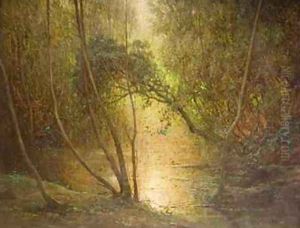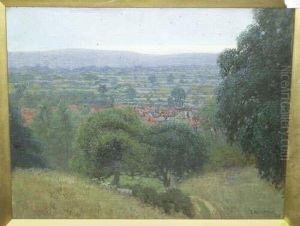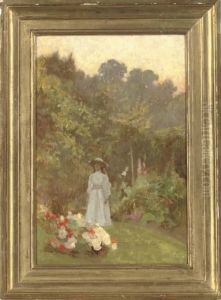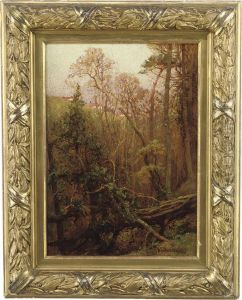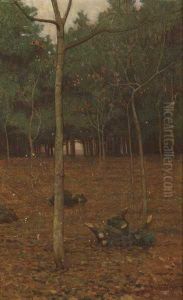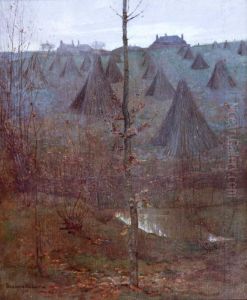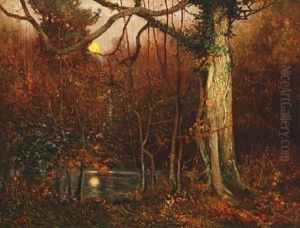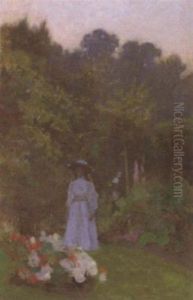Benjamin Haughton Paintings
Benjamin Haughton was an English painter known for his landscapes and rural scenes, capturing the essence of the English countryside with a particular focus on the beauty and tranquility of pastoral life. Born in 1865, Haughton's early life and education in art remain somewhat obscure, yet he emerged as a significant figure in the British art scene during the late 19th and early 20th centuries. His works are characterized by their detailed depiction of nature, the use of light, and a serene palette that together evoke a sense of peace and timelessness.
Haughton's artistic journey was notably influenced by the broader movements of his time, including Impressionism, though he maintained a distinctive style that favored realism with a gentle touch of romanticism. This approach allowed him to create scenes that were both accurate in their representation of the natural world and imbued with a sense of idyllic calm. He exhibited his work at various prestigious venues, including the Royal Academy and the Royal Society of British Artists, gaining recognition and appreciation for his contribution to British landscape painting.
Despite his success, Benjamin Haughton remained a relatively private figure, focusing on his art rather than public acclaim. His paintings often feature scenes from the English counties of Devon and Somerset, where he is believed to have spent much of his life. The rural landscapes, with their detailed foliage, reflective waters, and soft skies, are testament to Haughton's deep connection with the countryside. His work captures not just the visual beauty of these locales but also the timeless quality of rural England at the turn of the century.
Haughton's legacy is that of a dedicated landscape artist who contributed significantly to the British art scene of his time. His paintings continue to be admired for their beauty, craftsmanship, and the window they offer into the pastoral life of England's past. Benjamin Haughton passed away in 1924, leaving behind a body of work that continues to be celebrated for its quiet beauty and serene depiction of the natural world.
